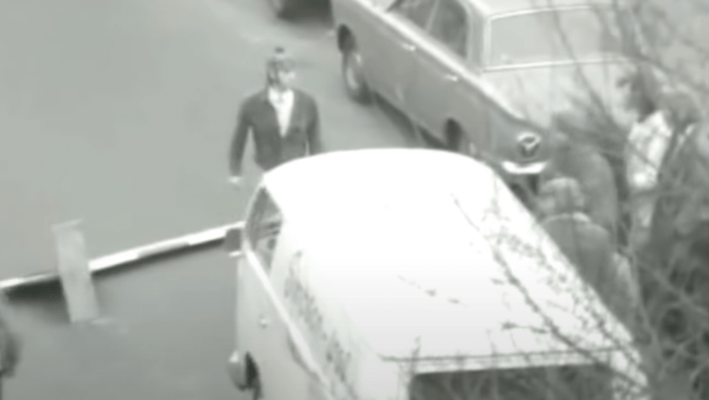Last month, British Prime Minister Rishi Sunak released his “Plan for Motorists,” which reads like it was written by a car. In it, Sunak proposes to rid his polluted, congested nation of so-called “anti-motorist” measures such as 20 mph speed limits, dedicated bus lanes, and automated camera enforcement. Sunak’s party has also bought into conspiracy theories that 15-minute cities, built so everything you need is within a 15-minute walk or bike ride away, are prisons for car owners.
We are a nation of drivers.
— Rishi Sunak (@RishiSunak) September 30, 2023
Most of us use a car every day and, for many, life would be difficult without their car.
But too often, drivers feel under attack.
That changes today with a long-term plan to improve drivers' experience on the road.
Here’s how 👇🧵 pic.twitter.com/yJvotPyyYy
In New York, politicians of all stripes are ratcheting up anger over the so-called (and eponymous podcast title) “war on cars.” Council Member Bob Holden (D-Queens) decried the arrival of Citi Bike in central Queens as a salvo from the “fanatical anti-car movement,” and Council Member Vickie Paladino (R-Queens) uses her office Twitter account to blast congestion pricing and even the transition to electric vehicles amount as Democrat-led cash grabs. Meanwhile, companies like Broadway Stages are flexing their muscle to get the mayor’s chief adviser — who boasts that she hasn’t ridden the subway in decades — to reverse long-established safe street redesign protocols.
It’s worth reminding oneself that this is the response to measures that aim to: a) make roadways safer; b) delay the worst effects of climate change; and c) make it easier to simply breathe outside. Such proposals barely ask Americans to make even a small sacrifice in the grand scheme of things, but they do seek to encourage people to drive a little bit less, to drive a less-polluting vehicle, or to try (keyword: try) to give people the option of not driving at all.
In return, people who even mildly question the primacy of the automobile are met with a vitriolic backlash, one whose vehemence shows how deeply people associate themselves with the car. Initiatives that use less than 1 percent of a city’s (mostly free) parking spots for something that isn’t the private storage of vehicles on public space — like bikeshare, outdoor dining or even getting disgusting trash out of the way of pedestrians — are labeled a “war” on our “way of life.” (Or as conservative commentator Ann Coulter put it: “$0 for the Wall. $5 Billion for bike paths.”)
This car culture war will likely get worse, as Sunak, Holden, Paladino and their ilk show. Cities can’t deliver on their climate goals without getting cars off the road. Cities cannot succeed in solving America’s road-death crisis without calming streets, reducing car speeds and creating more space for cyclists and pedestrians.
Meanwhile, Millennials and Gen Zers, who will soon dominate policy-making circles, want walkable communities and lives without cars. That’s good news for the future, but sets up a clash with the naysayers who still have a grip on power (and community boards).
But the revanchists should be aware: their culture war risks backfiring. The abortion fight is a telling example. Conservatives who pushed to repeal Roe v. Wade didn’t expect people to respond by voting to preserve abortion rights, even in deep-red states. This was always one of Donald Trump’s great flaws: by making everything political, you end up energizing a lot more people (who are usually apolitical) against you.
The same can be said about cars. There’s a clear demand for safer streets and better mobility options: bike lanes lead to more cycling, while pedestrianization leads to more walking (and spending). Polls often capture a wide swath of the population that would bike or walk more if conditions were safer or more pleasant. If opponents seek battles to prevent the changes we need, they shouldn’t be surprised when people of all backgrounds show up in support.
Change, of course, is difficult — and cars are potentially poised for the loudest outcry. You might not know someone who had to get an abortion, whose sexual identity or orientation are under attack, or whose school district banned fact-based history instruction, but it’s almost an absolute certainty that you’ve been in a car. In a recent interview, Sunak said exactly that when dodging questions about a major high-speed rail project that he cancelled: “The vast majority of the journeys that people make are in their cars,” he said, suggesting that trying to change that is futile and politically suicidal.

We’ve been here before. (Time and time again.) In 1972, an angry taxi driver in Amsterdam was captured on video ripping down barricades for a kids-only street and exerting his “right” to drive anywhere at any time. Residents persevered, pushing the Dutch capital to become a hallmark of people-friendly streets (with still plenty of cars to go around) as the rest of the world gobbled up more space for the internal combustion engine.
In many ways, countless cities today are finally arriving at their 1972 Amsterdam moment, stuck between a gurgling culture war that threatens to enrage and enlist countless drivers by convincing them that their parking is more important than the Earth or a child’s survival and a movement to reclaim space for everyone else.
Local leaders will just have to decide whether that’s actually an equal fight.






